This product is no longer manufactured. Remaining stock may still be available. Please refer to the alternatives listed below under "Similar products" or contact us directly.
Alternative Products for this discontinued product:
BTS2048 Series
Compact spectroradiometers with excellent optical performance and BiTec technology for precise measurements for lab and field use.
- Scientific grade and industrial standard in compact size
- BiTec Sensor: Dual sensor for more accurate measurements
- UV to IR (200 nm to 2150 nm)
- Excellent optical performance (linearity, stray light reduction, traceable calibration, etc.)
- Most versatile spectroradiometer for almost every application
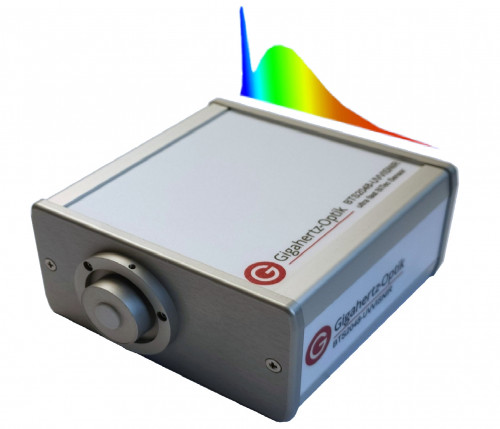
Meets the Requirements of a Modern, Versatile Array Spectroradiometer from UV to IR
There are many factors to be considered when assessing the suitability of array spectrometer systems for the absolute measurement of optical radiation parameters.
- For instance, the measurement of lamps that have different power ratings is only possible using array detectors that have a wide dynamic range. Precise, absolute measurements require the entire dynamic range of the spectroradiometer to be completely linearized and also require an accurate, traceable calibration.
- If the electronically controlled dynamic range (set by the integration time) is not sufficient, additional attenuating filters are needed. The filter selector must be mechanically robust to ensure long-term stability of the measurement system. For time-critical applications such as LED binning in pulsed mode, the electronically controlled dynamic range must be large enough to avoid the need for a time-consuming filter change during the measurement. For absolute measurements, an automated dark signal adjustment of the CCD is most beneficial.
- Spectroradiometers that are used for the binning of LEDs must accommodate the precise synchronization of the measurement with the test LEDs operated in pulsed mode, thereby requiring suitable trigger interface and fast data readout. Flash measurements, i.e. measurements within a light pulse, require an electronic shutter for instantaneous (ns) zero setting of all pixels before a measurement is triggered.
- For accurate measurements in the UV range stray light reduction comparable to that of a double-monochromator is needed. Here the performance of the BTS2048 series is outstanding due to its combined optical filter and stray light matrix correction approach. This exceptional performance of the BTS2048 series is evidenced in several scientific publications.
- For low intensity detection, long integration times are needed which require precise temperature stabilized sensors.
- For outdoor applications weatherproof housings are needed.
- For flicker measurements a fast CW integral sensor is needed. The BTS technology incorporates such an integral detector, which can be also be used as a reference sensor, thereby making the BTS2048 series superior to simple spectroradiometers.
- For low measurement uncertainties a high linearity (f3), low f2 error and low calibration uncertainties are needed. Our ISO 17025 calibration laboratory is the ideal facility for achieving this.
- The measurement of the luminous flux, luminous intensity, and luminous intensity distribution require additional accessory components e.g., integrating spheres, luminous intensity lenses, fiber coupled adapters and goniometers. Reproducible interfacing to these entrance optic accessories is essential. Direct mounting of the spectroradiometer onto the accessory equipment helps avoid influences of flexible light guide connections.
- Among all the above requirements, system performance in accordance with CIE 15, and TM-30-18, CIE S025 and LM-79-08 standards, etc. is needed. We are active partner in the DIN and CIE to name a few examples. This allows us to be up to date with latest certification.
- For greatest versatility a compact size and highest mechanical robustness are essential.
The BTS2048 series combines this performance requirements throughout the product range. For almost every application a version of the BTS2048 is available. If not, a custom version is also an option.
Scientific Grade, Industrial Standard
The BTS2048 series has shown its performance in many scientific publications including inter-comparisons with double monochromators in terms of stray light reduction (see scientific articles). Furthermore, the well established BTS technology offers the possibility to have a reference sensor implemented, a fast diode for flicker measurements or simply a very stable integral detector. Additionally the integral diode can be spectral mismatch corrected by the spectral data and therefore is able to correct the spectral data in linearity/stability. See all advantages in this technical article.
Due to this performance the BTS2048 series is applied world wide in LED measurement applications, as a UV reference laboratory device, for risk group determination of light sources, as a spectral irradiance meter in goniometers and many more.
→ See our detailed product series description (tab Downloads)
Product Overview
Here you will find a product overview according to the applications.
In the following table the main versions configured for spectral irradiance are listed:
| Series | Spectral Range / nm | Bandwidth / nm |
| BTS2048-UV Series | 200 - 430 | 0.8 |
| BTS2048-UV-2 Series | 200 - 550 | 1.0 |
| BTS2048-BS Series | 400 - 530 | 0.3 |
| BTS2048-UVVISNIR Series | 200 - 900 | 2 |
| BTS2048-VL-TEC Series | 280 - 1050 | 2 |
| BTS2048-NIR Series | 950 - 1700 | 5.5 |
| BTS2048-IR Series | 950 - 2150 | 9 |
User Software and Software Development Kit
The standard S-BTS2048 user software offers a customizable user interface and is intuitive and easy to use. It has a large number of display and function modules which can be activated when configuring the BTS2048-series with the respective accessories from Gigahertz Optik GmbH. Furthermore customer specific software tools are possible if needed.
The S-SDK-BTS2048 developer software is recommended for integration of the BTS2048-series in the customer’s own software.
Calibration
One essential quality feature of spectroradiometric devices is their precise and traceable calibration. The BTS2048-series is calibrated by Gigahertz-Optik’s calibration laboratory that was accredited by DAkkS (D-K-15047-01-00) for the spectral responsivity and spectral irradiance according to ISO/IEC 17025. The calibration also includes the corresponding accessory components. Every device is delivered with its respective calibration certificate.

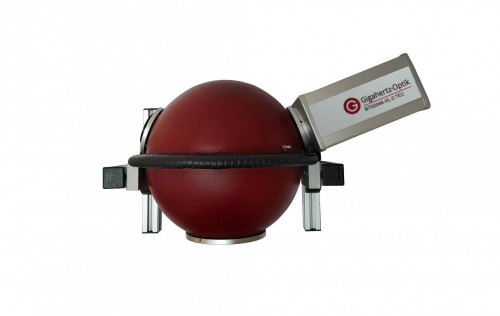
Integrationg Sphere: Direct mounting of the measurement device and accessory components
Fiber coupled Version for Gigahertz Optik fibers or FC
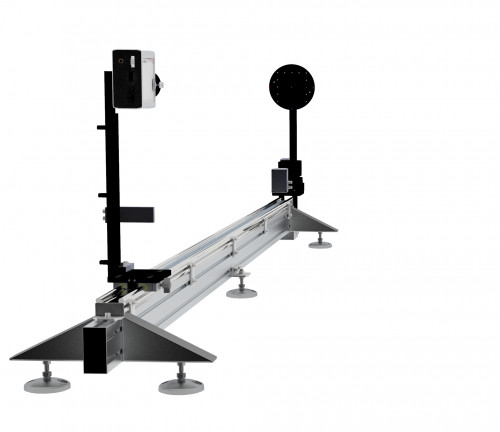
Compact size and orientation independent use for goniometric measurements
Weather Proof Housing for Outdoor Usage (UV Index, TOC, spectral irradiance, global UV)
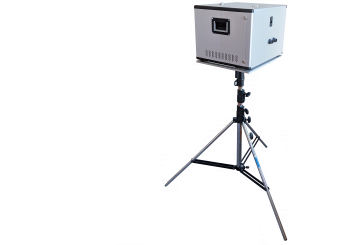
SST-180x System Configuration 200 nm bis 3000 nm. Adapter plate for tripod available.
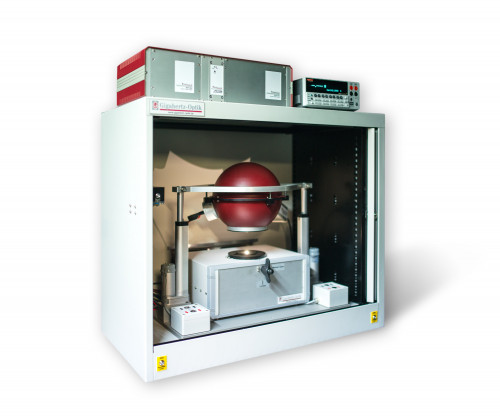
LED charactericatian Test Rig
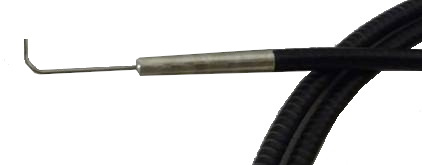
BTS2048-VL-F-Z01: Probe header for small LED chips (waferprober)
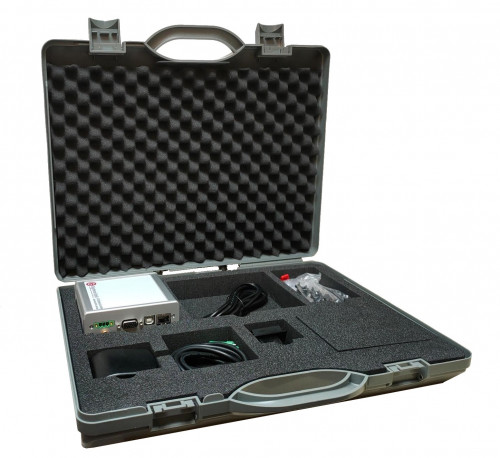
BTS2048-xx in Case
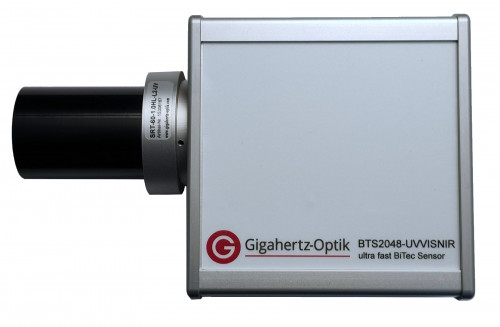
with SRT tube for 1°,2°,5°,10° FOV
Similar Products
Product Categories